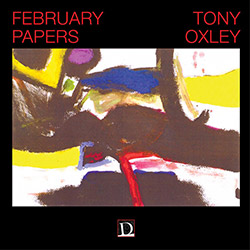
Reissuing percussionist and electronic innovator Tony Oxley's 1977 Incus album, collecting works from Oxley's evolving approaches, including a quartet with bassist Barry Guy and violinists David Bourne & Philipp Wachsmann; a trio with Barry Guy and Ian Brighton on electric guitar; and solo pieces including a piece for Evan Parker emulating his sound through electronics.
In Stock
Quantity in Basket: None
Log In to use our Wish List
Shipping Weight: 3.00 units
EU & UK Customers:
Discogs.com can handle your VAT payments
So please order through Discogs
Sample The Album:
Tony Oxley-percussion, electronics, violin
Barry Guy-double bass, bass guitar
Philipp Wachsmann-violin
David Bourne-violin
Ian Brighton-electric guitar
Click an artist name above to see in-stock items for that artist.
UPC: 5051078983028
Label: Discus
Catalog ID: 99CD
Squidco Product Code: 29583
Format: CD
Condition: New
Released: 2020
Country: UK
Packaging: Cardboard Gatefold
Recorded February 1977 at Hampden Gurney Studios, London, UK, by Keith Spencer-Allen.
"A reissue of the Incus Records LP, originally released in 1977. Crisply recorded in VangelisÕ London studio, and mastered for re-release under OxleyÕs personal supervision. This album is a classic example of UK free improvisation by one of the originators of that style, with the added dimension that the playing is framed within OxleyÕs forward looking compositional frameworks. The collective personnel play in quartet and trio configurations, detailed and collective sounds from strings, percussion and electronics. But perhaps the two centrepieces of the album are OxleyÕs solo tracks, where his extended use of drum kit and amplified objects is clearly underpinned by pure jazz skill."-Discus
Artist Biographies
• Show Bio for Tony Oxley "Tony Oxley (born 15 June 1938) is an English free-jazz drummer and one of the founders of Incus Records. ony Oxley was born in Sheffield, England. A self-taught pianist by the age of eight, he first began playing the drums at seventeen. In Sheffield he was taught by well respected local drummer Haydon Cook, who had returned to the city after a long residency, in the 1950s, at Ronnie Scotts in London. While in the Black Watch military band from 1957 to 1960 he studied music theory and improved upon his drumming technique. From 1960 to 1964 he led his own quartet which performed locally in England, and in 1963 he began working with Gavin Bryars and guitarist Derek Bailey in a trio known as Joseph Holbrooke. Oxley moved to London in 1966 and became house drummer at Ronnie Scott's, where he accompanied visiting musicians such as Joe Henderson, Lee Konitz, Charlie Mariano, Stan Getz, Sonny Rollins and Bill Evans until the early 1970s. He was also a member of various groups led by musicians such as Gordon Beck, Alan Skidmore and Mike Pyne. In 1969 Oxley appeared on the recording of the later released John McLaughlin album Extrapolation and also formed his own quintet consisting of Derek Bailey, Jeff Clyne, Evan Parker and Kenny Wheeler, releasing the album The Baptised Traveller. Following this album the group was joined by Paul Rutherford on trombone and became a sextet, releasing the 1970 album 4 Compositions for Sextet. That same year Oxley helped found Incus Records along with Bailey and others and also the Musicians Cooperative. He also received a three-month "artist-in-residence" at the Sydney Conservatorium in Australia in 1970. Around this time he joined the London Jazz Composers Orchestra and also got involved with collaborations with Howard Riley. In 1973 he became a tutor at the Jazz Summer School in Barry, South Wales, and in 1974 he formed another group of his own known as Angular Apron. Through the 1980s he worked with various musicians, including Tony Coe and Didier Levallet, also forming his own Celebration Orchestra during the latter half of that decade. Oxley also did extensive touring with Anthony Braxton in 1989, and also began a long-lasting working relationship with Cecil Taylor during this period.Oxley at the Moers Festival, Germany, in 2008 In 1993 he joined an international quartet that included Tomasz Sta ko, Bobo Stenson, and Anders Jormin, and in 2000 he released the album Triangular Screen with the Tony Oxley Project 1, a trio with Ivar Grydeland and Tonny Kluften." ^ Hide Bio for Tony Oxley • Show Bio for Barry Guy "Barry John Guy (born 22 April 1947, in London) is a British composer and double bass player. His range of interests encompasses early music, contemporary composition, jazz and improvisation, and he has worked with a wide variety of orchestras in the UK and Europe. He also taught at Guildhall School of Music. Born in London, Guy came to the fore as an improvising bassist as a member of a trio with pianist Howard Riley and drummer Tony Oxley (Witherden, 1969). He also became an occasional member of John Stevens' ensembles in the 1960s and 1970s, including the Spontaneous Music Ensemble. In the early 1970s, he was a member of the influential free improvisation group Iskra 1903 with Derek Bailey and trombonist Paul Rutherford (a project revived in the late 1970s, with violinist Philipp Wachsmann replacing Bailey). He also formed a long-standing partnership with saxophonist Evan Parker, which led to a trio with drummer Paul Lytton which became one of the best-known and most widely travelled free-improvising groups of the 1980s and 1990s. He was briefly a member of the Michael Nyman Band in the 1980s, performing on the soundtrack of The Draughtsman's Contract. Guy's interests in improvisation and formal composition received their grandest form in the London Jazz Composers Orchestra. Originally formed to perform Guy's composition Ode in 1972 (released as a 2-LP set on Incus and later, in expanded form, as a 2-CD set on Intakt), it became one of the great large-scale European improvising ensembles. Early documentation is spotty - the only other recording from its early years is Stringer (FMP, now available on Intakt paired with the later "Study II") - but beginning in the late 1980s the Swiss label Intakt set out to document the band more thoroughly. The result was a series of ambitious, album-length compositions designed to give all the players in the band maximum opportunity for expression while still preserving a rigorous sense of form: Zurich Concerts, Harmos, Double Trouble (originally written for an encounter with Alexander von Schlippenbach's Globe Unity Orchestra, though the eventual CD was just for the LJCO), Theoria (a concerto for guest pianist Irène Schweizer), Three Pieces, and Double Trouble Two. The group's activities subsided in the mid-1990s, but it was never formally disbanded, and reconvened in 2008 for a one-off concert in Switzerland. In the mid-1990s Guy also created a second, smaller ensemble, the Barry Guy New Orchestra. Guy has also written for other large improvising ensembles, such as the NOW Orchestra and ROVA (the piece Witch Gong Game inspired by images by the visual artist Alan Davie). His current improvising activities include piano trios with Marilyn Crispell and Agusti Fernandez. He has also recorded several albums for ECM, which often focus on the interface between improvisers and electronics, including his work in Evan Parker's Electro-Acoustic Ensemble and his own Ceremony. Guy's session work in the pop field includes playing double bass on the song "Nightporter", from the Japan album Gentlemen Take Polaroids. He is married to the early music violinist Maya Homburger. After spending some years in Ireland, they now live in Switzerland. They run the small label Maya, which releases a variety of records in the genres of free improvisation, baroque music and contemporary composition. Guy's jazz work is characterised by free improvisation, using a range of unusual playing methods: bowed and pizzicato sounds beneath the bass's bridge; plucking the strings above the left hand; beating the strings with percussion instrument mallets; and "preparing" the instrument with sticks and other implements inserted between the strings and fingerboard. His improvisations are often percussive and unpredictable, inhabiting no discernible harmonic territory and pushing into unknown regions. However, they can also be melodious and tender with due regard for harmonic integration with other players, and at times he will even play with a straight jazz swing feel. Similarly, in his concert works, Guy manages to alternate harmonic and rhythmic complexity worthy of 1960s experimentalists such as Penderecki and Stockhausen with joyous, often ecstatic, melody. Works such as "Flagwalk" for string orchestra and "Fallingwater - Concerto for Orchestra" display Guy's compositional skill in handling extended forms and writing for large instrumental groups. Some of his compositions, such as "Witch Gong Game" for ensemble, use graphic notation in conjunction with cue cards to lead performers into playing and improvising material from numbered sections of the score. He is also an architect." ^ Hide Bio for Barry Guy • Show Bio for Philipp Wachsmann "Philipp Wachsmann. Born Uganda, 1944; violin, viola and electronics. In the CD booklet to Gushwachs, John Corbett notes that Phillip Wachsmann came to free improvisation from a predominantly classical background, particularly via the contemporary experiments of "indeterminacy, graphic and prose-based scores, conceptualism and electroacoustics, listening to Webern, Partch, Ives, Berio and Varèse, reading 'Die Reihe' and interrogating the rhythmic, harmonic and melodic preoccupations of Western art music. Starting in 1969, Wachsmann was a member of Yggdrasil, an ensemble performing works by Cage, Cardew, Feldman, Ashley and others and in this group he used contact mikes on the violin and made his own electronic instruments, ring modulators and routing devices. Ironically, his studies with Nadia Boulanger in Paris (1969-1970) pushed him hard in the direction of free music. He recalls: 'Despite her neoclassical orientation, her insistence that composition is about the imagination of performance and its realisation, the live moment, and her stunning ability to make this happen was a powerful influence on me, steering towards 'performance' and therefore 'improvisation'.'" Wachsmann moved from Yggdrasil to Chamberpot - recorded on Bead 2 - and shortly thereafter appeared on Tony Oxley's influential February papers, forward looking in the virtual 'industrial' orientation of some of the tracks, years before this became an accepted genre; the two musicians have continued to work together, in various groupings but notably in the percussionist's Celebration Orchestra. Philipp Wachsmann has also performed and/or recorded with: Derek Bailey's Company, e.g. on the recording Epiphanies; Georg Graewe; Barry Guy; Iskra 1903; King Übü Orchestrü; London Jazz Composers' Orchestra; Evan Parker, particularly as part of the Evan Parker Electronic Project; Quintet Moderne; Fred Van Hove's ML DD 4; Rüdiger Carl's COWWS (now CPWWS) Quintet; and Lines, with Martin Blume, Jim Denley, Axel Dörner and Marcio Mattos. He also plays as a solo musician. Phillip Wachsmann also administers Bead Records." ^ Hide Bio for Philipp Wachsmann • Show Bio for Ian Brighton Ian Brighton is a free improvising guitarist, known for the bands Balance, Spontaneous Music Ensemble, and Spontaneous Music Orchestra. ^ Hide Bio for Ian Brighton
11/29/2024
Have a better biography or biography source? Please Contact Us so that we can update this biography.
11/29/2024
Have a better biography or biography source? Please Contact Us so that we can update this biography.
11/29/2024
Have a better biography or biography source? Please Contact Us so that we can update this biography.
Have a better biography or biography source? Please Contact Us so that we can update this biography.
Track Listing:
1. Quartet 1 7:35
2. Sounds Of The Soil 2 7:20
3. Brushes 4:08
4. Chant-Quartet 2 6:48
5. Trio 2 5:16
6. Combination 7:04
7. On The Edge (To E.P.) 2:57
Improvised Music
Free Improvisation
Electro-Acoustic
Electro-Acoustic Improv
Incus
Jazz Reissues
London & UK Improv & Related Scenes
European Improvisation, Composition and Experimental Forms
Quintet Recordings
Staff Picks & Recommended Items
Top Sellers for 2020 by Customer Sales
Search for other titles on the label:
Discus.


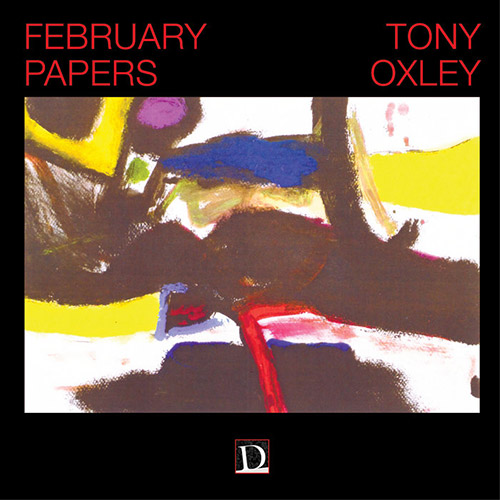


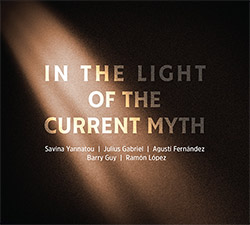
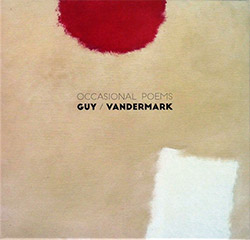

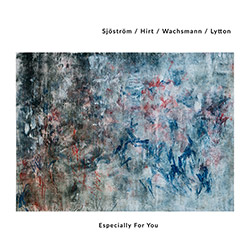
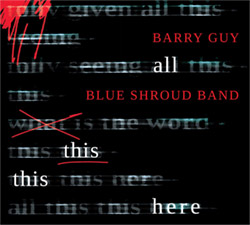
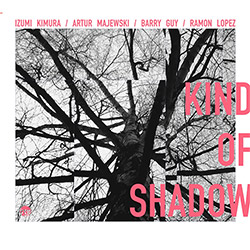
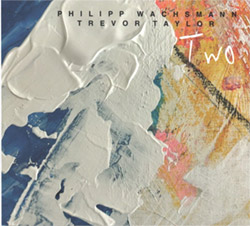
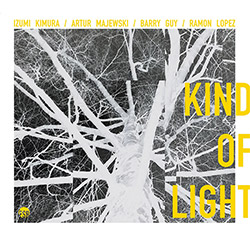
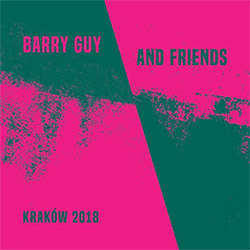
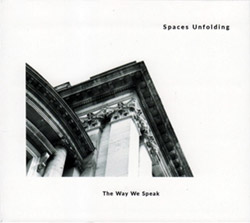

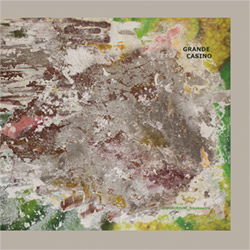
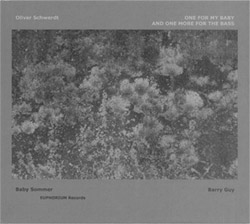
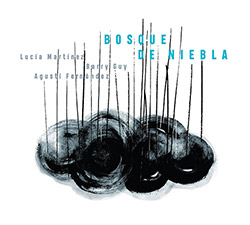

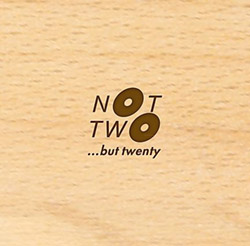
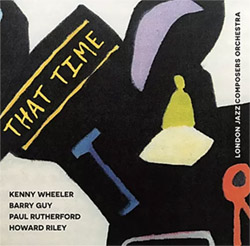

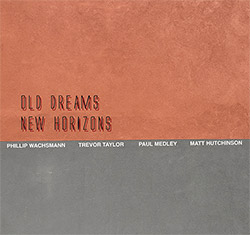
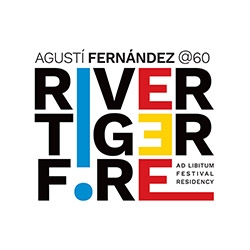
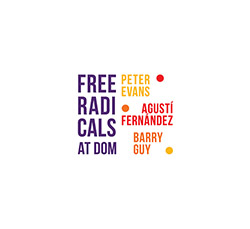
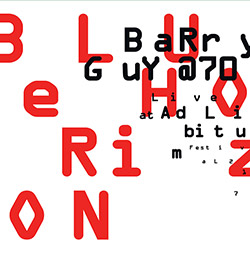
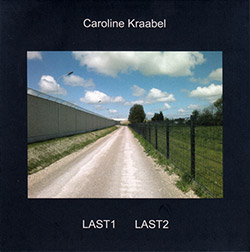




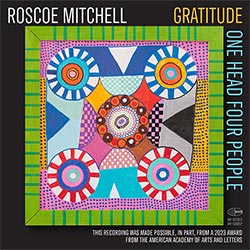
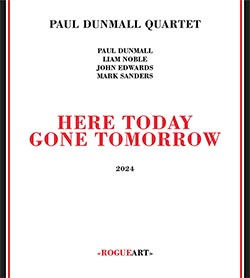
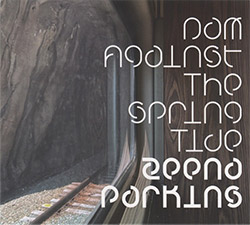
![Weston, Matt: Communism Has Appeared On The Scene [VINYL 2 LPs]](https://www.teuthida.com/productImages/misc4/35546.jpg)
![Coleman, Steve & Five Elements: PolyTropos / Of Many Turns [2 CDs]](https://www.teuthida.com/productImages/misc4/35476.jpg)
![Sorey, Tyshawn (w/ Diehl / Ragahavan): The Susceptible Now [DOUBLE VINYL]](https://www.teuthida.com/productImages/misc4/35477.jpg)


![John Coltrane Quartet (Coltrane / Tyner / Garrison / Jones): Impressions From Graz 1962, Revisited [2 CDs]](https://www.teuthida.com/productImages/misc4/35495.jpg)

![Novoa / Carter / Mela Trio: Vol.1 [VINYL]](https://www.teuthida.com/productImages/misc4/35236.jpg)


![Elephant9 : Mythical River [VINYL]](https://www.teuthida.com/productImages/misc4/34624.jpg)
![Evans, Peter (Evans / Eldh / Black): Extra [VINYL]](https://www.teuthida.com/productImages/misc4/35279.jpg)

![McPhee, Joe: Straight Up, Without Wings [BOOK]](https://www.teuthida.com/productImages/misc4/35454.jpg)
![Jeck, Philip: rpm [2 CDs]](https://www.teuthida.com/productImages/misc4/35455.jpg)









![Barker / Parker / Irabagon: Bakunawa [VINYL]](https://www.teuthida.com/productImages/misc4/35533.jpg)




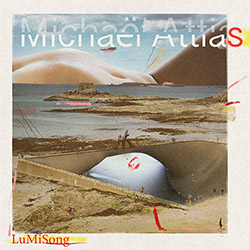
![Blaser, Samuel / Marc Ducret / Peter Bruun: Dark Was The Night, Cold Was The Ground [VINYL 10-inch]](https://www.teuthida.com/productImages/misc4/35492.jpg)





![Warren, Kenny (Warren / Hoffman / Ellman): Sweet World [VINYL]](https://www.teuthida.com/productImages/misc4/35451.jpg)




![Blake, Ran / Dave Knife Fabris: Live Amsterdam 2006, First Visit [CD + POSTCARDS]](https://www.teuthida.com/productImages/misc4/35275.jpg)




![DNS: Taking Big Bites Of The Khandas Three Cafes Deep [2 CDs]](https://www.teuthida.com/productImages/misc4/35334.jpg)




![Cleaver, Gerald: The Process [VINYL]](https://www.teuthida.com/productImages/misc4/34966.jpg)




![Alva Noto: HYbr:ID II [VINYL 2 LPs]](https://www.teuthida.com/productImages/misc4/35201.jpg)

![Baron, Derek / Luke Martin: Distinct and Concealed [CASSETTE + DOWNLOAD]](https://www.teuthida.com/productImages/misc4/35079.jpg)

![Lyle, Erica Dawn : Colonial Motels [CASSETTE + DOWNLOAD]](https://www.teuthida.com/productImages/misc4/35080.jpg)









![Sanna, Claudio: Compositori Sardi Contemporanei II [2 CDs]](https://www.teuthida.com/productImages/misc4/35317.jpg)







![Zurria, Manuel: Fame di Vento [3 CDs]](https://www.teuthida.com/productImages/misc4/35167.jpg)

![Granberg, Magnus / Nattens Inbrott / Skogen: Holde Traume, Kehret Wieder! [2 CDs]](https://www.teuthida.com/productImages/misc4/35038.jpg)
![Frey, Jurg: Outermost Melodie [2 CDs]](https://www.teuthida.com/productImages/misc4/35039.jpg)

![Pavone, Jessica: Reverse Bloom [VINYL]](https://www.teuthida.com/productImages/misc4/34895.jpg)




![Modney (Modney / Wooley / Gentile / Roberts / Pluta / Symthe / ...): Ascending Primes [2 CDs]](https://www.teuthida.com/productImages/misc4/34852.jpg)







![Elephant9 with Terje Rypdal: Catching Fire [VINYL 2 LPs]](https://www.teuthida.com/productImages/misc4/35355.jpg)
![Deerlady (Obomsawin, Mali / Magdalena Abrego): Greatest Hits [VINYL]](https://www.teuthida.com/productImages/misc4/34876.jpg)




![Haino, Keiji: Black Blues [2 CDs]](https://www.teuthida.com/productImages/misc4/35109.jpg)



![Surplus 1980: Illusion of Consistency [CD]](https://www.teuthida.com/productImages/misc4/35069.jpg)
![Staiano, Moe: Away Towards the Light [VINYL + DOWNLOAD]](https://www.teuthida.com/productImages/misc4/35037.jpg)



![Caveira (Gomes / Sousa / Abras / Ferrandini): Ficar Vivo [VINYL]](https://www.teuthida.com/productImages/misc4/34643.jpg)
![Gregg, J. J. / David Van Auken: Lunar Prairie [CD w/ DOWNLOAD]](https://www.teuthida.com/productImages/misc4/34611.jpg)

![Coultrain: Mundus [VINYL]](https://www.teuthida.com/productImages/misc4/32439.jpg)
![Mattin: Songbook #6 [VINYL]](https://www.teuthida.com/productImages/misc4/27317.jpg)
![Punkappella: Wake Up [7-inch VINYL]](https://www.teuthida.com/productImages/misc4/17519.jpg)
![Residents, The: WARNING: UNiNC.: Live And Experimental Recordings 1971-1972 [VINYL 2 LPs]](https://www.teuthida.com/productImages/misc4/31521.jpg)
![Coultrain: Phantasmagoria [VINYL]](https://www.teuthida.com/productImages/misc4/30142.jpg)
![Lennon, Sean Ono: Asterisms [VINYL]](https://www.teuthida.com/productImages/misc4/34517.jpg)

![Coley, Byron: Dating Tips for Touring Bands [VINYL]](https://www.teuthida.com/productImages/misc4/17906.jpg)

![Lost Kisses: My Life is Sad & Funny [DVD]](https://www.teuthida.com/productImages/misc4/lostKissesDVD.jpg)